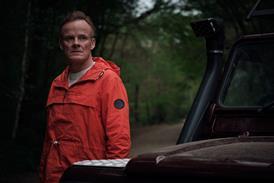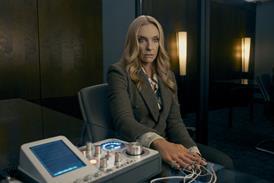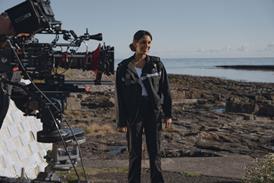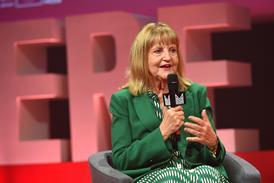Leaving aside its impressive Sea Life Centre and the fact that it's home to BBC series Coast, there's not too much marine life to be found in Birmingham. But if you want to have sharks, otters or clownfish digitally rendered, Brum might well be the place to come.
The city's ethnic mix and young demographic has proved conducive to creativity in cutting-edge fields. A raft of businesses specialising in producing and distributing digital content have sprung up over the past decade, while more mainstream indie production companies have built up digital expertise of their own.
The momentum has reached such a level that this year will see the city's first major digital film and media festival, which its organisers hope will become an annual fixture.
“I think Birmingham has embraced digital media, not just in the city itself but across the West Midlands region,” says Maverick Television founder and digital media director Jonnie Turpie. “It's an exciting time to be here. We're seeing lots of projects happening across the city that are pilots and test beds for new sorts of public-service content.”
Maverick itself, which has a large digital team, blends a mixture of straightforward websites for established TV show brands with more socially minded and educational projects. Examples of the latter are 4 Pioneers, a social networking service from Channel 4 for teenagers and entrepreneurs, and ideasforlife.tv, an interactive web TV channel for Birmingham Science City.
“We've been focusing on digital distribution lately as it has become evident that this is the way forward,” says Tom Norton, director of the four-year-old Producers' Forum, a body with roughly 100 members that promotes the West Midlands as a centre for production. “We're seeing the You Tube/web 2.0 boom - everything is leading towards putting the power into the hands of people who make the films.
Norton adds: “More and more producers are realising the internet can reach a worldwide audience. People from Birmingham can be quite self-deprecating. But the forthcoming Digital Media Festival will allow people to shout from the rooftops about what's going on here. The web isn't London-centric.”
There is a fair amount of activity to prove the point. Television Junction makes programmes such as Great Books and Reading Aloud for Teachers TV, which reaches a lot of its audience online. This fact has made the indie think long and hard at its business model, and make some key changes that include investment in its own website.
“We're changing the style of our own development,” says joint managing director Paul Davies. “We're going to be using our own website as a showcase. We want to be in tune with this new way of commissioning which requires ideas that will work across different platforms. Instead of just sending off a tape to commissioning editors, we want to show how much digital is happening at Television Junction.”
Over at the BBC, a number of digital initiatives are run out of Birmingham. There is BBC Asian Interactive, which looks after the interactive services for the BBC Asian Network (www.bbc.co.uk/asiannetwork) and incorporates a weekly listing of Asian-related programmes on radio and TV, quotes from the message board that encourage debate plus news and sports headlines updated every minute.
In addition, there are the official websites for radio stalwart The Archers - The Archers podcast is one of the BBC's most popular - and Video Nation, which showcases both archive and new films from around the country on a range of thought-provoking subjects. Finally, there is a Birmingham-based Future Media team, responsible for developing new media output from all the English regions.
While the focus of this piece is Birmingham, nearby Leamington has become something of a hub for computer games' publishers and developers, hosting companies such as Blitz and Codemasters, and allowing digital content creation talent to be attracted, retained and honed in the region. Moreover, the Serious Games Institute at Coventry University was launched in 2007 to provide deeper insight into the sector by supporting the development of research into digital computer games with an educational purpose. Warwick is home to agency Fish in a Bottle, which late last year won the pitch to create online promotional material for new CBeebies live action music series Space Pirates and has, in the past, created promotional games for Doctor Who. So the wider region has an interesting spread of high-calibre digital businesses and resources.
Back in Birmingham's digital media scene, The Charactershop, an animation and digital effects CGI production studio, scripted, designed, storyboarded and produced Knight Rider Turbo Boost. Based on the iconic 1980s TV show, this international six-part mini comedy series was created specifically for mobile phones. Characters were designed and developed using Flash while a bespoke animation rig was created in 3D Studio Max providing a flexible animation tool to allow for a cost-effective and efficient production pipeline, integrating 2D characters with 3D environments and vehicles. Each episode is between three and 3.5 minutes in length and has been made at TV resolution resized for mobile. The team stuck to mid shots and close-up camera moves were minimised to avoid pixellation due to the compression used on mobile videos. A 30-second viral ad was produced to promote the series.
Knight Rider was CharacterShop's first foray into the mobile space for client Player X/Universal. “With continuing demand for mobile-based entertainment, broadcasters and media operators are competing for compelling content, be it an existing TV property or original ‘made for mobile' content,” says head of business development Nahida Zaman.
Eight Eyed Sea Bass, a producer with 2D and 3D animation skills based in Birmingham's Jewellery Quarter - which together with the area in and around the Custard Factory in Digbeth has become something of a focal point for creative and digital businesses - employs an in-house scriptwriter. However, says director and head of visuals Dominic Osborne, in the current market there is not enough scope to support lots of full-time staff, so the business scales up and down to meet the needs of individual projects.
“There's definitely a talent pool in Birmingham and the West Midlands,” Osborne continues. “It's well served but of course we'd like to see it grow. Geography doesn't and shouldn't matter now - we've had clients from as far afield as China and the US - and you can get a London-standard product here but at a better price.”
Gas Street Works, a digital media agency which has a high proportion of public-sector organisations among its clients, is building its expertise in areas such as custom video players with bespoke functionality, podcasting management systems and video content management systems. The under-lying strategy is providing a framework through which clients can use video routinely, be this user-generated or professionally produced.
“At the moment, I'd say digital represents 25% of our business,” says GSW director Stuart Udale. “But I expect that within two years the ratio will be 50:50.”
When clients find video to be a simple, quick and cost-effective communications medium, they tend to require more of it, he elaborates. So the new web products and services that GSW is developing are becoming the driver for its core business.
GSW takes the view that other video production companies in Birmingham need to embrace the web in this way, and bring the correct skillsets onboard, as opposed to seeing it as a threat.
Quench Design, whose work includes ITV1 screen idents and titles for Fifth Gear, is also expanding its services by partnering with Birmingham City University's technology innovation centre to become design and infrastructure partners to clients keen to develop IPTV services. Quench founder Peter Smith says helping clients get video content onto the websites of their choosing for minimum hassle will be an important service in the future. Birmingham may be a fair distance from the sea, but at the moment it is riding a digital wave.
The Digital Film and Media Festival
After the Birmingham International Film and Television Festival ceased to exist in 2003, it became clear that England's second city lacked a flagship event celebrating the moving image. A future of film festival debate staged in 2006 under the auspices of Suzie Norton, at the time director of Film Birmingham, identified digital as a focus.
A working party comprising Anthony Lilley (Magic Lantern), Peter Packer (Packerpunch) and Neil Watson (adviser to UK Film Council) set about developing proposals for boosting the city's digital presence. At the heart of this will be a four-day digital film and media festival this autumn.
“We have more under 35-year-olds than any other city in Europe and by 2011 we will be a majority minority city - so we have a very young and diverse population with a real interest in digital media,” says Norton, who remains involved in her new role as chief executive of Screen WM.
Birmingham City Council has earmarked£150,000 to support the event this year, with a similar amount for 2008. Significant investment is already in the pipeline from RDA Advantage West Midlands. Organisations including Arts Council England West Midlands, the British Chambers of Commerce, Business Link West Midlands, Marketing Birmingham, the Department for Culture, Media and Sport and the UK Film Council are all backing the event and a Partnership Board has been set up to oversee things.
“The event will revolve around digital creativity, skills and enterprise,” says Norton. “We're hoping to attract members of the public, but there will be lots for the industry as well.”
And because this is digital, there will be a significant online portal.”
Key players in Birmingham's digital media scene
Dan Jones, Maverick Television
Dan Jones is head of new media at Maverick Television where, with Maverick director of digital media Jonnie Turpie, he oversees a department of 25. For largest client Channel 4, there are micro sites and other forms of online support for popular programmes such as How to Look Good Naked, 10 Years Younger, Bollywood Star and How Clean is Your House? There is ongoing work for 4Homes and 4Talent, while for the return of Embarrassing Illnesses, viewers will be able to submit photos of their complaints online and download short clips to their mobile phone on how to check themselves for conditions such as testicular cancer. Separately, Maverick is working with Warwick University on Ideasforlife.tv, an interactive science TV channel.
Stef Lewandowski, 3 Form
Stef Lewandowski is proprietor of digital development and design company 3 Form, which he set up in 2001. He has worked online with brands such as Vivienne Westwood, the V&A and Sprite. Moreover, he has helped create areas for user-generated content on websites linked to TV shows such as Jamie at Home and How Clean is Your House? “We're looking now at building our own content and digital platforms,” says Lewandowski. Last year, he was chosen by the British Council as one of three creative entrepreneurs to represent the UK in its international Digital Pioneers programme which involved cross-cultural exchanges with Hong Kong.
Nick Stragnell, Big Button
Nick Stragnell is new media director of Big Button, a business involved in film and video, web and interactive and motion graphics. He majored in film and fine art at Wolverhampton and trained as a cameraman and editor before specialising in digital content. “Anyone can shoot something and put it up on YouTube, but it doesn't do you any favours if the quality isn't any good,” he says. Big Button's work includes the www.digishorts.co.uk website for Screen West Midlands, which promotes the development and production of short films. He has also worked with Television Junction and clients such as Microsoft, web host Rackspace, pen maker Uniball and bathroom supplier Bristan.
Antonio Gould, 4Pioneers
Antonio Gould is executive producer of 4Pioneers, a social networking service for teenagers and entrepreneurs that is Maverick's major Channel 4 education project for 2008. He is a web producer with 12 years' experience in consultancy and production around social software, web 2.0 platforms and e-commerce. He co-founded 3Form with Stef Lewandowski and has worked with clients including the BBC. During his years of working with young people and new media, he has developed a range of projects around youth webcasting, video conferencing, film and music.
Russell Townsend, Clusta
Russell Townsend has built up the Birmingham office of digital agency Clusta to 20-plus staff and in 2007 expanded into the US by opening an LA office. TV titles work has included behind-the-scenes specials for the likes of Prison Break and Bones. Wrigley, Kellogg's and MG are among Clusta's corporate clients. “We're growing phenomenally fast,” says Townsend. “We're doing lots of things that unfortunately we can't talk about due to non-disclosure agreements.” Clusta is understood to be working with dunnhumby on content for in-store shopping channel Tesco TV. Past projects include a touch-responsive light show for Smirnoff and a training resource for Carphone Warehouse.

























No comments yet